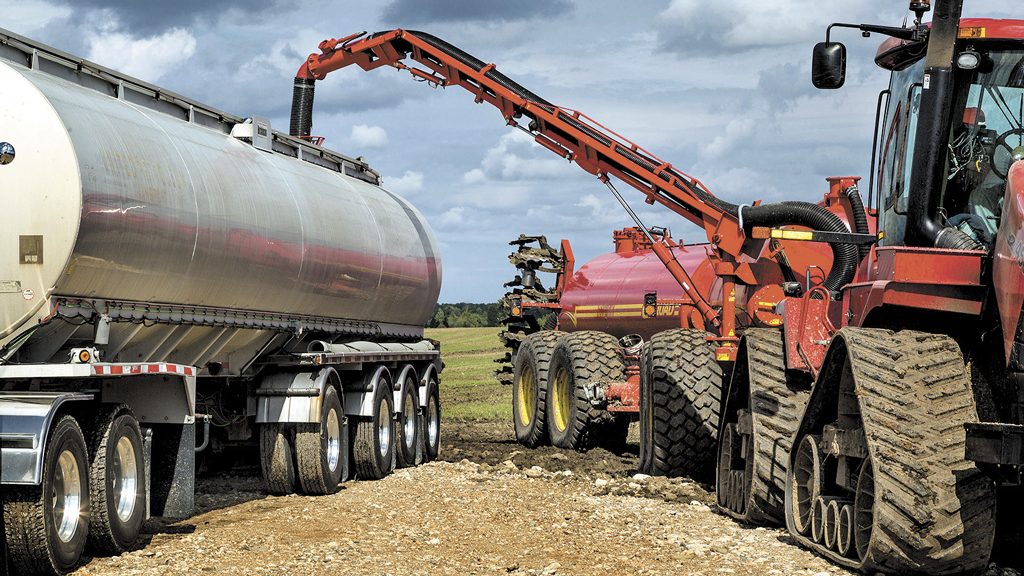The slogan says “Good Things Grow in Ontario” and with a little help from bio-digestion it’s right on the money.
Soil management may seem light years away from waste water recovery technology but everyone in the sector knows the intense connection.
Managing the land we have wisely is the only option for sustainability and that includes maintaining optimum soil quality essential for agriculture. It’s a frontier where science and technology have converged to better leverage something most people would rather just flush and forget.
Lystek International, a Cambridge, Ont.-based company, which designs and makes waste treatment systems, is at the forefront of that trend to ensure viability of agricultural soil.
Its thermal hydrolysis systems reduces cost, shrinks volume and cuts greenhouse gases by augmenting municipal and industrial wastewater treatment facilities, converting them into more modern resource recovery centers. They optimize digester performance and boost biogas production, creating a branded nutrient-rich bio-fertilizer while also producing and separating a carbon source for use in Bio Nutrient Removal (BNR) systems.
Its systems target municipalities with for small and mid-sized needs, though they can also scale them up for larger demands such as the Fairfield-Suisun Sewer District (FSSD) in California, the Lystek Fairfield Organic Material Recovery Center facility.
The Ontario Ministry of Agriculture, Food and Rural Affairs (OMAFRA) found the resulting fertilizer, LysteGro, is a viable commercial fertilizer replacement to grow corn in western Ontario.
FSSD is a P3 project to revitalize the plant originally built in the late 1970s and who’s Class B bio-solid had been used to cover local landfill.
Now the 150,000 ton, state-of-the-art OMRC-FSSD, is processing 14,000 tons of volume per year servicing Bay Area agencies, including the cities of San Francisco, Santa Rosa, Petaluma and many others.
It also just won the California Environmental Protection Agency (CalEPA) Governor’s Environmental and Economic Leadership Award (GEELA), the highest environmental honour the state bestows.
Part of that is because the resulting bio-solids are no longer Class B and sprayed on landfill but LysteGro, certified as Class A EQ-US EPA in the United States and here in Canada under the CFIA for use in agriculture.
Lystek started in 2000, the muse of University of Waterloo scientists, Dr. Owen Ward and Dr. Ajay Singh.
Commissioned to look at how Waterloo Region was dealing with waste management. They found that by trucking liquid materials and releasing greenhouse gases that there had to be a better way.
Though the two aren’t involved day-to-day they are still working in research and development, says Kevin Litwiller, director of business development. The company is now held by the Ottawa-based Tomlinson Group, a family-owned construction and waste management company.
The key to the start-ups success out of the gate was that it optimizes the performance of anaerobic digesters, transforming organic waste streams into a high-value, nutrient-rich bio-fertilizer while requiring a small footprint and small amounts of energy. Lystek’s system allows for biogases to be double processed, increasing yield up to 50 per cent or better.
“What they developed using low temperatures, which only go up to about 70 C with three operating parameters to destroy the pathogens, resulted in a high quality liquid fertilizer with 15 per cent organic solids in concentration, 85 per cent liquid,” he says.
“The material is first subject to low heat steam jets then there’s a maceration blade, like a giant milkshake maker, which then disrupts and breaks up any cell structures and exposes them to the steam as well. Then there’s the addition of alkaline, usually lime or even cement kiln dust or potassium hydroxide.”
The fully automated process effectively kills anything in the material, is simple to install and operate and requires no special training, unlike bio-digestion systems using high temperature.
“We can have a system up and running with trained people in two weeks,” he says.
Lystek is on track to double growth through 2020 from a 2014 baseline and is on track to open facilities in St. Thomas and Innisfil, Ont,, adding to their existing Ontario installations in Guelph, St. Marys, Centre Wellington, Southgate OMRC, Third High Farms (eastern Ontario), Peterborough and in North Battleford, Sask.




Recent Comments